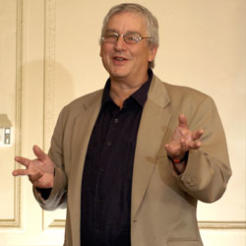Nigel Kershaw, chief executive of Big Issue Invest and chair of Big Issue, has warned that some in the social investment community are bringing ‘toxic’ thinking into the sector, saying it is dangerous that some think of social change as an asset class.
Speaking last night, at the event 'Social entrepreneurship: the future', Kershaw said that many people in the social investment community wanted to “give something back”, and were driven by “good hearts”. But he also warned that some, particularly those from the finance sector, were bringing "toxic thinking" into the sector.
“There is a danger that social change is being seen as an asset class,” he said. “At a recent G8 investment on social investment there was talk of bringing £1tr into the sector.
“If 22 years ago, Big Issue pitched to these people, they would not have invested in us. Impact measurement would not have been possible as we wouldn’t have had a track record yet.”
Kershaw said while he was not against impact measurement, he stressed that everything could not be measured. “There is a tendency to focus on metrics and measures,” he said.
Dominic Campbell, founder and director of FutureGov, a social digital and design agency, who was on a panel at the event, also criticised social investors, saying they were not much different to venture capitalists.
“When I’m applying for social investment it does not feel very different to venture capital. The only difference is a box at the end asking what is your social impact.
“It is capitalism reinventing and repositioning itself to support little fleas on an elephant but eventually you come to be subsumed by that elephant,” he warned.
Earlier in the event, Campbell said he had been at a meeting where the auditor PwC had the “audacity” to call itself a social enterprise.
Private sector has best skills to create social change
Sally Reynolds, co-founder and former CEO of Social Firms UK, also spoke at the event on her hopes that the term ‘social enterprise’ would become so mainstream that the word would no longer be needed as an identifier.
She also said that the private sector had the best skills to create big social change. “I would love to say the voluntary sector,” she said. “But the private sector has the resources and the entrepreneurial skills. It’s easier to pick up social empathy than business skills.”
Another speaker at the event, Liam Black, the co-founder of Wavelength Companies and former CEO of Fifteen, also praised the private sector at the event, saying that Social Enterprise UK’s fear of the private sector encroaching on the social enterprise space was misplaced.
He said some large corporations, including Google, were doing very exciting things in the social space. But he did also concede that while an idealist refusing to work with big business risks nothing happening, with a pragmatist there was the risk of getting stitched up by big business.
Another panellist at the event, Soushiant Zanganehpour, a manager at Skoll Centre for Social Entrepreneurship, suggested that private sector interest in social enterprise was about profit.
“They see this as the future of competition,” he said. “They want to institutionalise issues like the environment before their competitors. It’s about margins.”
The debate was organised by the Goldsmiths Social Entrepreneurship Society.









